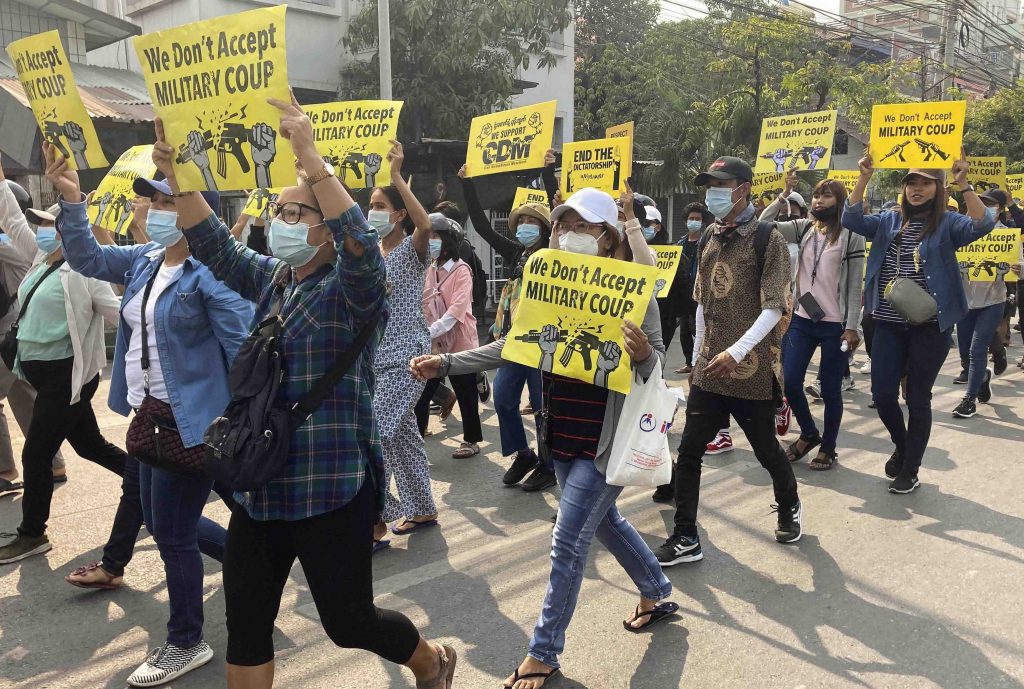Yangon: The BBC said Monday that a journalist from its Burmese-language service was released by authorities in Myanmar. However, it gave no details. Meanwhile protesters in the Southeast Asian nation continued their broad civil disobedience movement against last month’s military coup. The journalist, Aung Thura, was detained March 19 by men who appeared to be plainclothes security agents. When she was apprehended she was reporting outside a court in the capital of Naypyitaw.
Arrests of media workers have been part of the junta’s intensifying efforts to choke off information about the February 1 coup. Some 40 journalists have been arrested since the coup, half of whom are still in detention — including Thein Zaw of this agency— according to the Myanmar-based ‘Assistance Association for Political Prisoners’.
Lawmakers from the Association of Southeast Asian Nations (ASEAN) urged Monday regional leaders to meet and devise a ‘strong and decisive response’ to increased violence against protesters by Myanmar’s military. The lawmakers urged the 10-nation bloc to send a delegation alongside the UN Special envoy to Myanmar to help negotiate a ‘democratic and human rights-based solution’.
ASEAN has a policy of non-interference in each other’s affairs. However, some regional leaders have rebuked the violence and urged restraint in Myanmar.
“The Myanmar army is killing people every day. Statements are welcome, but are useless against the military’s bullets,” said Charles Santiago. He is a Malaysian lawmaker who heads the ASEAN Parliamentarians for Human Rights group.
Since the military seized power, many citizens from teachers to doctors, traders and railway workers have joined a civil disobedience movement. They have resorted to widespread boycotts, strikes and other actions in an attempt to force a return to a civilian government.
The junta has responded with an increasingly brutal crackdown and sought to limit information reaching the outside world. Security forces have opened fire on crowds and killed hundreds, internet access has been severely restricted, private newspapers have been barred from publishing, and protesters, journalists and politicians have been arrested in large numbers.
Protesters on Monday sent hundreds of red balloons into the air in Myanmar’s biggest city, Yangon, in support of civilian leader Aung San Suu Kyi, who was ousted in the coup and detained. Many also wore red shirts, the colour of her National League for Democracy party.

